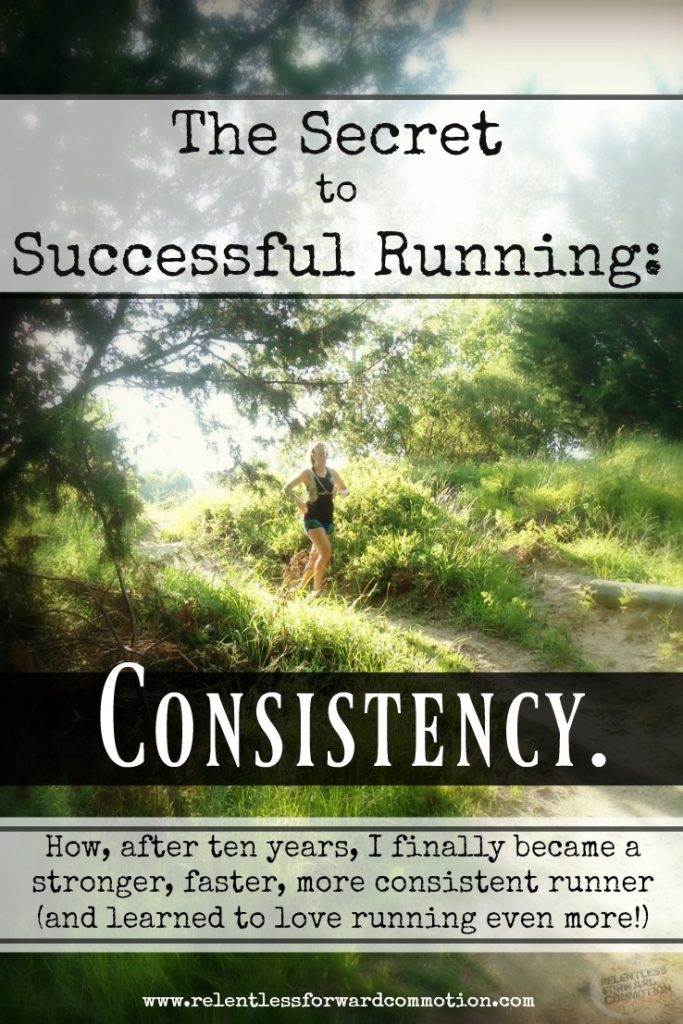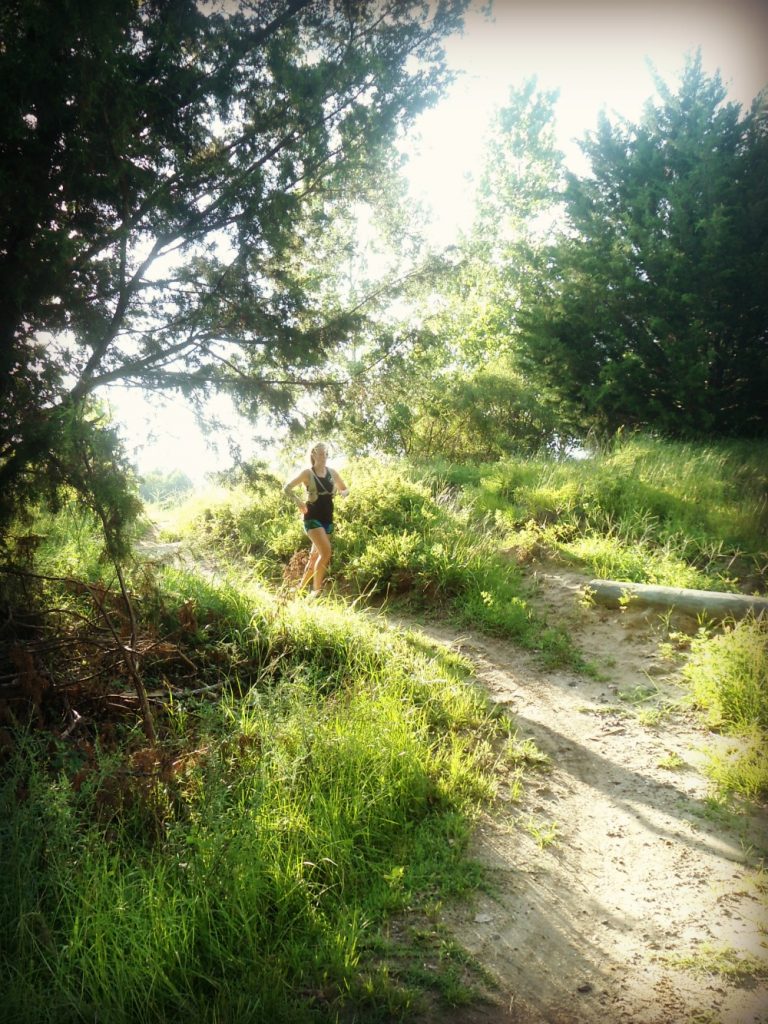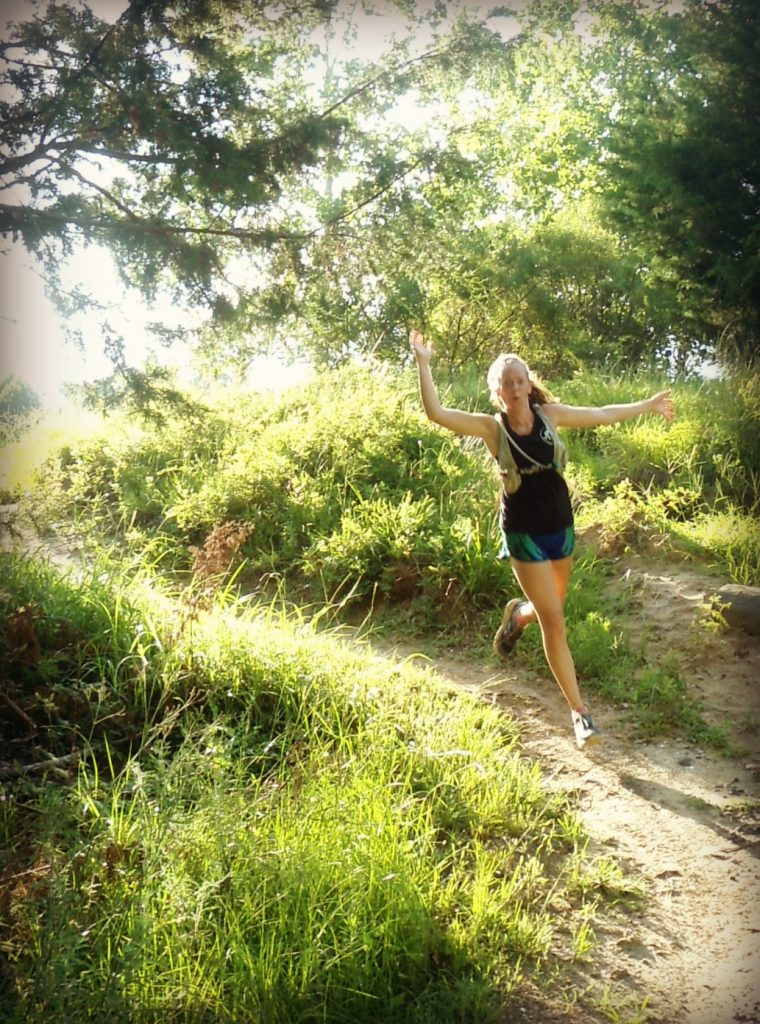Last Updated on March 13, 2022 by Heather Hart, ACSM EP, CSCS
I was never one who feared turning 30.
I wasn’t overly anxious to leave my twenties, but I never dreaded that day on the calendar when my life status flipped from 29 to 30. And now at age 34.5, nearly halfway through this particular decade, I can confidently say that so far, the thirties have been my favorite age yet. I’m old enough to have made mistakes…plenty of mistakes. Even some really big, life altering mistakes. But I’m still young enough to feel like I have my whole life ahead of me (here’s hoping!) a life where I’m a little bit wiser, having learned from the trials and experiences of the last 34.5 years. This of course goes for every aspect of my life, but since this blog tends to focus on running, let’s talk about that instead.

This November will mark one full decade of what I consider my running “career”. Sure, I had run a couple of races prior to 2006. I was an athlete growing up, and went through a few stints of “I feel fat, maybe I should go for a run” during my early twenties. Running was always a part of my life in some form or another, but it wasn’t until 2006 when the running bug took hold… I bought new shoes, a Garmin GPS, and never looked back. I was running for no other reason than simply because I liked to run.
I was a runner.
And truth be told, despite all of the fun races and running accomplishments, the last decade has been full of one running mistake after another. Injuries. Burn out. Setting expectations too high, and feeling deflated when I didn’t reach them. Wondering why I never got any faster, or any stronger. For years the cycle of too much racing and not enough training, or expecting to hop into a rigid training schedule only to fall flat not even halfway through, happened over and over again.
Ten years later, I’ve finally discovered my weakness. And it wasn’t the lack of a specific training plan. It wasn’t the fact that I never “wanted my goals” enough. It wasn’t the wrong shoes, or weak hips, or any of the other things I would use as excuses.
It was a lack of consistency. And that’s truly it. That was my missing puzzle piece.

In retrospect, it’s kind of hilarious that I was able to ignore one of the most basic building blocks of a solid running career for so long. But I think it is an easy thing to do, when you dive into running head first, and immediately begin worrying about things like pace, qualifying races, and PR’s. Classic FOMO, a perfect case of our impatient society that wants to do, have, and be right now.
I know I’m not alone.
I truly don’t know what changed, what flipped the switch in my head and my training, but something finally did, and I am forever grateful for whatever that “something” was. My best guess would be my entrance into the ultra running world. As unprepared as I was, taking that leap into SUPER long distance races was an eye opener for me, a reminder of why *I* like to run. A place where endurance takes precedence over speed (for me), a world where finishing is an accomplishment in and of itself (again, for me), and no one asks if you BQ’d. Training suddenly became about “time on feet” not “pace per mile” and I suddenly found myself not just loving running some of the time, but every single time. I feel stronger. Stronger than I’ve EVER felt as a runner. I find my mileage is slowly climbing to levels I’ve never run before, and it doesn’t feel like a chore.
Even in this ridiculous heat and humidity.

Actual age: 34. Internal age: 6. Perpetually 6. Down-hills require airplane wings.
This post, of course, is based on my experience. Your results may differ, your coach may think my advice is absolutely full of mountain goat poop. But if you are a new runner who is interested in building a steadfast running habit, or a veteran runner who, like me, can never seem to get into a regular routine, here’s a few words of advice:
Be realistic about where you are RIGHT NOW.
Start with the training volume you actually have right at this very moment. Not the volume you left off at during the peak of your marathon training two years ago. Not at the volume an online training plan says you should start with.
Build from where YOU are right NOW. And if that’s five miles or fifty, so be it. But jumping right into a training plan with a volume significantly higher than where you are TODAY not only leaves you at risk for injury, but mental burnout. Honestly, I’m not sure which of the two is worse.
The “no more than 10% jump in mileage per week” rule has kind of been debunked, but it’s still a good baseline if you really have no idea where to start. If your body (and mind) can handle larger increases in mileage, awesome, if they need even smaller jumps, respect that too.
Ditch your GPS.
I’m probably never going to get an offer to review any sort of GPS on this blog again with the frequency that I preach leaving your GPS at home. It’s not that I harbor any disdain for these technical gadgets, but I do think they can seriously hinder your training as much as they can help.
I see it in new runners all of the time: they start training, they fall in love with the sport, and in less than a month they are proud owners of a shiny new GPS watch (as I mentioned earlier, I am totally guilty of this myself). Now, instead of continuing to foster a love for simply the act of running, or build any sort of base mileage or consistency in their training, they begin obsessing about numbers. Too fast/too slow/not the right heart rate zone /not far enough…
Sound familiar?
At nearly ten years into my running career, I’ve ditched my GPS for 99% of my runs. I don’t care how fast I run. I just care that I’m out there running, building a solid base an unwavering habit, while reminding myself of how much I truly love to run.
Listen to your body.
No, stop, REALLY. Listen to your body. While working on building consistency, I had a very loose outline of what I wanted to do, training wise, throughout the week. But that loose outline came second to listening to my body. If something starts to hurt, or I’m just feeling exhausted, then maybe that 10 mile run will end at 5 miles. If I’m feeling on top of the world, and only planned to run 5 miles, but want to keep going…I keep going. What was more important to me than putting in a specific number of miles, was putting in regular days of training…whatever that training might entail.
Get out there.
Some days I’m tired. Some days I have every excuse in the world at the tip of my tongue ready to get me out of a run: work, deadlines, I’m tired, the kids, it’s too hot…you name it. But I make myself go anyway. And the deal I have with myself is that if, after the first mile, everything still sucks and I don’t want to be out there, I stop. (See: “Listen to your body” above.) I might walk, or I might just go home. But at least I got out there and tried, contributing to building consistency. And truth be told, 9 times out of 10, I end up running through those “bad days” anyway.
Is all of this truly the secret to successful running?
Maybe…or maybe not. It’s a little clickbait-y, I’ll be the first to admit. But this much more proactive, yet at the same time, very relaxed, approach to running has mad a world of difference for me as a runner. And if you’re looking for a “running reset” of your own…it might be worth a try.
Go back to square one. Build consistency. The rest will follow.
Heather Hart is an ACSM certified Exercise Physiologist, NSCA Certified Strength and Conditioning Specialist (CSCS), UESCA certified Ultrarunning Coach, RRCA certified Running Coach, co-founder of Hart Strength and Endurance Coaching, and creator of this site, Relentless Forward Commotion. She is a mom of two teen boys, and has been running and racing distances of 5K to 100+ miles for over a decade. Heather has been writing and encouraging others to find a love for fitness and movement since 2009.

Kyle Jeffrey Kranz
So true. Running constentently should be a primary goal of all who are looking to improve 🙂
Deborah @ Confessions of a mother runner
I agree that being realistic about your time and commitment and listening to your body are key. You look so happy running 🙂
Mikki
Great post. I actually just watched something on the news about those fitness gadgets and GPS things and how inaccurate they can be. Leaving them at home sounds much freer and fun.
icomment
Totally trying to work on consistency but the “listen to your body” part keeps getting in the way…just thinking out loud here but maybe I should try reducing my already short distances a bit more to cut my body a break. (Less distance = more consistency, it’s worth a shot)
*random tangents*
Also, I’m finally getting a shot at some proper trail running this weekend. I’ll have to dig out one of the kids head lamps though as I suspect it’ll be a late evening run.
ALSO, we are the same age, that is neat (read like Harold Ramis in Orange County)
masala girl
consistency is KEY. i tried training for a 10k, it was meh. i followed a training plan and ACTUALLY followed it, and loved it so much when i was running consistently and improving, and killed my time. it was awesome.
wendyistakingthelongwayhome
What really helped me with consistency was working with a coach. My coach isn’t a running coach, but she really helped me recognize my strengths and got me running the strongest of my life. She helped me through cross training that contributed to my running. It’s been an amazing journey.
Kayla @ Blondes Have More Run
This was a GREAT post!! I really enjoyed reading it and found all of your tips very helpful. I especially like the deal you make with yourself on days you don’t feel like running. I’m going to remember that one!
Melissa (@melissagabbs)
This is awesome and resonates so much with me right now. I’m a new runner and in between races (haven’t started training for my next) and I find myself wondering if I should even bother – but it’s because I actually haven’t ran in a while.
xtinaluvspink
Consistency really is key!!
Jill Conyers (@jillconyers)
Several of these are great tips for so many things other than running. Consistency is often the key.